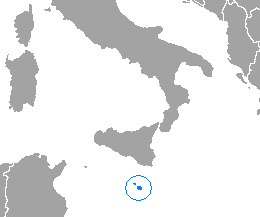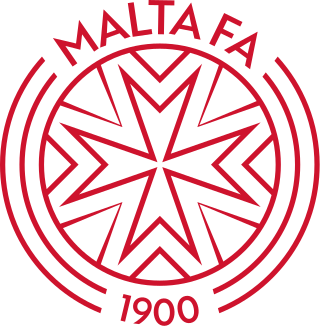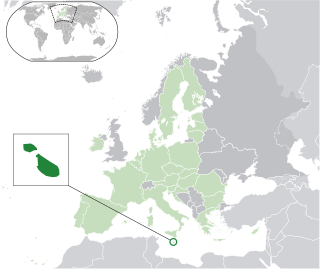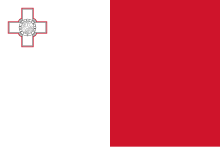
Maltese is a Semitic language derived from late medieval Sicilian Arabic with Romance superstrata spoken by the Maltese people. It is the national language of Malta and the only official Semitic and Afroasiatic language of the European Union. Maltese is a Latinized variety of spoken historical Arabic through its descent from Siculo-Arabic, which developed as a Maghrebi Arabic dialect in the Emirate of Sicily between 831 and 1091. As a result of the Norman invasion of Malta and the subsequent re-Christianization of the islands, Maltese evolved independently of Classical Arabic in a gradual process of latinization. It is therefore exceptional as a variety of historical Arabic that has no diglossic relationship with Classical or Modern Standard Arabic. Maltese is thus classified separately from the 30 varieties constituting the modern Arabic macrolanguage. Maltese is also distinguished from Arabic and other Semitic languages since its morphology has been deeply influenced by Romance languages, namely Italian and Sicilian.

Malta, officially the Republic of Malta, is an island country in Southern Europe, located in the Mediterranean Sea. It consists of an archipelago between Italy, Tunisia and Libya. It lies 80 km (50 mi) south of Sicily and Italy, 284 km (176 mi) east of Tunisia, and 333 km (207 mi) north of Libya. The two official languages are Maltese, the only Semitic language in Europe and the European Union, and English. The country's capital is Valletta.

The economy of Malta is a highly industrialised service-based economy. It is classified as an advanced economy by the International Monetary Fund and is considered a high-income country by the World Bank and an innovation-driven economy by the World Economic Forum. It is a member of the European Union and of the eurozone, having formally adopted the euro on 1 January 2008.

Lampedusa is the largest island of the Italian Pelagie Islands in the Mediterranean Sea.

The Malta men's national football team represents Malta in international football and is controlled by the Malta Football Association, the governing body for football in Malta.

The Malta Football Association is the governing body of football in Malta.

Fort Manoel is a star fort on Manoel Island in Gżira, Malta. It was built in the 18th century by the Order of Saint John, during the reign of Grand Master António Manoel de Vilhena, after whom it is named. Fort Manoel is located to the north west of Valletta, and commands Marsamxett Harbour and the anchorage of Sliema Creek. The fort is an example of Baroque architecture, and it was designed with both functionality and aesthetics in mind.
Football in Malta is run by the Malta Football Association and was introduced to Malta during British rule in the mid-19th century. The sport at the time was new to England, and was used as a means of entertainment for the soldiers stationed in Malta at the various barracks around Malta at the time. In 1863 a football association was formed which governed rules and regulations for this quickly changing sport, which was still in amateur competition stage and played in an un-scheduled format until 1909 when a league format was introduced.

The Battle of Djerba took place in May 1560 near the island of Djerba, Tunisia. The Ottomans under Piyale Pasha's command overwhelmed a large joint Christian alliance fleet, composed chiefly of Spanish, Papal, Genoese, Maltese, and Neapolitan forces. The allies lost 27 galleys and some smaller vessels as well as the fortified island of Djerba. This victory marked perhaps the high point of Ottoman power in the Mediterranean Sea.

Lesbian, gay, bisexual, and transgender (LGBT) rights in Malta rank among the highest in the world. Throughout the late 20th and early 21st centuries, the rights of the LGBT community received more awareness and same-sex sexual activity was legalized on 29 January 1973. The prohibition was already dormant by the 1890s.

The Order of Knights of the Hospital of Saint John of Jerusalem, commonly known as the Knights Hospitaller, is a medieval and early modern Catholic military order. It was founded in the crusader Kingdom of Jerusalem in the 12th century and had headquarters there until 1291, thereafter being based in Kolossi Castle in Cyprus (1302–1310), the island of Rhodes (1310–1522), Malta (1530–1798), and Saint Petersburg (1799–1801).

The Malta women's national football team represents the Malta Football Association in international women's football matches sanctioned by UEFA.
The Malta Handball Association is the governing body of handball in Malta. It is affiliated to the International Handball Federation (IHF), the European Handball Federation and the Malta Olympic Committee (MOC). It is also registered with the Malta Sports Council (MSC).

Malta competed at the 2008 Summer Olympics in Beijing, China from 8 to 24 August 2008. The country's participation at Beijing marked its fourteenth appearance at a Summer Olympics since its début at the 1928 Summer Olympics. The delegation sent by the Malta Olympic Committee consisted of six athletes: sprinters Nikolai Portelli and Charlene Attard, light-middleweight judoka Marcon Bezzina, double trap shooter William Chetcuti and short-distance swimmers Ryan Gambin and Madeleine Scerri.

Ioannis Papafis or Giovanni di Niccolò Pappaffy was a Greek businessman and philanthropist, prominent for helping in the funding of the Greek War of Independence and in financing crucial sectors of independent Greece after its successful conclusion. He is considered a national benefactor of Greece. He was among the primary shareholders of the National Bank of Greece, donated to the University of Athens, and the Greek Orthodox Church through the Ecumenical Patriarch of Constantinople.

Malta competed at the 2012 Summer Olympics in London, which was held from 27 July to 12 August 2012. The country's participation at London marked its fifteenth appearance in the Summer Olympics since its début at the 1928 Summer Olympics. The delegation included two track and field athletes, Rachid Chouhal and Diane Borg, one double trap shooter William Chetcuti and two swimmers Andrew Chetcuti and Nicola Muscat. All five competitors qualified for the Games through wildcard places. William Chetcuti was selected as the flag bearer for the opening ceremony while Borg held it at the closing ceremony. Choudai did not progress beyond the preliminary stages of the men's 100 metres, while Borg advanced to the first round of the women's 100 metres before being eliminated. William Chetcuti finished ninth in the double trap shooting event, while Andrew Chetcuti and Muscat were unable to progress to the first rounds of their respective swimming disciplines.

The French occupation of Malta lasted from 1798 to 1800. It was established when the Order of Saint John surrendered to Napoleon Bonaparte following the French landing in June 1798. In Malta, the French established a constitutional tradition in Maltese history, granted free education for all, and theoretically established freedom of the press, although only the pro-French newspaper Journal de Malte was actually published during the occupation.

Malta competed at the 2013 World Aquatics Championships in Barcelona, Spain from 19 July to 4 August 2013.
The 2004 European Winter Throwing Challenge was held on 13 and 14 March at St. John Athletic Stadium in Marsa, Malta. It was the fourth edition of the athletics competition for throwing events organised by the European Athletics Association. The 2004 event was the last to use the challenge name, as subsequent editions were known as European Cup Winter Throwing events. A total of 147 athletes from 28 countries entered the competition.

The Froberg Mutiny was a mutiny within the British armed forces staged between 4 and 12 April 1807 at Fort Ricasoli on the island of Malta, then a British Protectorate, by the Froberg Regiment. The regiment had been formed using dubious methods, with personnel recruited from various nationalities in Albania and the Ottoman Empire. The troops, who had arrived on Malta in 1806, were unhappy with their rank and pay. The mutiny lasted for eight days, during which several people were killed and the fort was damaged. The mutiny was put down and the ringleaders were executed. It is considered the most serious mutiny of the Napoleonic Wars.











